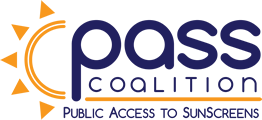‘PASS’ Pushes the Issue
Happi
‘PASS’ Pushes the Issue By Christine Esposito
April 5, 2013
A coalition that includes sunscreen ingredient companies, dermatologists and sunscreen manufacturers calls on FDA to create a pathway for new UV filters.
Americans have never been more informed about the dangers of the sun, yet despite the well-touted and proven benefits of sunscreen as a protector against melanoma and other skin cancer, each year there are more new cases of skin cancer than the combined frequencies of breast cancer, prostate cancer, lung cancer and colon cancer, according to statistics compiled by the Skin Cancer Foundation. Many stakeholders in the US sun care arena argue more must be done to combat this trend, including providing more raw material choices for US sun care manufacturers to create robust, efficacious sun protection products with great sensorial attributes.
Some of them have joined Public Access to Sunscreens (PASS)—a multi-stakeholder coalition of health organizations, sunscreen ingredient companies, dermatologists and concerned citizens. Last month, PASS kicked off a campaign to fight the growing skin cancer epidemic in the US by ensuring Americans have access to the latest effective sunscreens ingredients.
The coalition says it will work collaboratively with the Food and Drug Administration (FDA), the White House, Congress, health care providers, consumer organizations and sunscreen manufacturers to establish a framework for approval of the next generation of ultraviolet (UV) light active filters for over-the-counter (OTC) sunscreens.
PASS Coalition members include The Skin Cancer Foundation, Prevent Cancer Foundation, Melanoma Research Foundation, Dr. Harry Fallick, Dr. Henry Lim, Dr. Nadim Shaath, Dr. Steven Wang, Dr. Warwick Morison, Beiersdorf, L’Oréal USA Products, Ashland Inc., BASF Corporation,DeWolf Chemical, Fitz Chem Corporation and McCullough & Associates.
According to Dr. Shaath, Alpha R&D, the group has “a limited agenda and is hence more focused.” PASS says it is also committed to ensuring that FDA has the resources it needs to conduct the pre-market review of sunscreen time and extent applications (TEAs). Specifically, PASS is focusing on seven TEA UV filters, according to Shaath.
“America is a leader in innovation and scientific advancement, and yet while advanced sunscreen technology is available globally, it isn’t available in the US,” said Al Pearce, senior marketing manager, personal care for BASF Corporation, in a statement issued by the coalition. “The PASS Coalition intends to play an active role in calling on lawmakers and regulators to join forces to provide the public with the most effective and innovative sunscreens available.”
According to Pearce, Americans are much better informed about the need for proper sun protection, but they aren’t aware that many of the most innovative products in the category aren’t stocked in US stores. In a survey cited by PASS, 86% of citizens approve the idea of creating a program that allows for the latest sunscreen products and technology in the US.
“Consumers want higher SPF products,” Anna Gripp, global marketing manager, skin care and sun care at Ashland, Inc., said during a media conference call announcing the start of the campaign. According to Gripp, UV filters are making their way into all kind of cosmetic products. But as protection levels are increased, the level of traditional SPF ingredients also rises, which can impact sensorial aspects of a sunscreen.
Gripp said, “What we are trying to do as a coalition is facilitate the approval of new UV ingredients.” “A main issue is timely review of new, innovative UVA filters that are approved and used around the world, but not in US. Some have been under review for 10 years,” noted Pearce.
Other FDA-regulated industries that have experienced similar delays sought user fee programs to create a pathway for timely FDA consideration. But FDA does not currently operate a user fee program to expedite approval of applications for components of OTC sunscreen products, according to PASS.
Existing FDA user fee programs vary, but most charge a pre-determined payment from applicants to support the review and regulation of covered products. In return, applicants are guaranteed a predictable timeframe for a response from FDA, thus facilitating an accelerated and more predictable review process.
